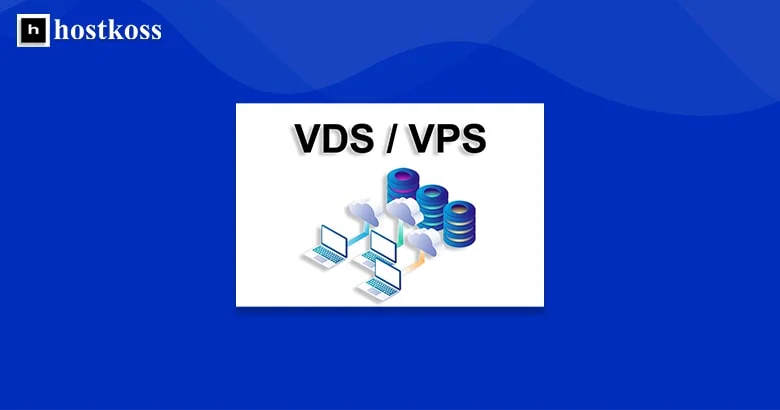Virtual Private Server (VPS) is a type of hosting that allows you to create a virtual server with a dedicated operating system and resources. This means that the VPS will run its own operating system, have its own IP address and will be completely isolated from other VPS on the same physical server. Buy a VPS server
A Virtual Dedicated Server (VDS) is another type of hosting that offers more control over hardware resources than a VPS. Unlike VPS, which are allocated as time slots on an underlying physical server, you can dedicate specific hardware resources to your VDS. Buy a dedicated server
Choosing the best server depends on your needs and the amount you are willing to spend. A virtual private server may be a cheaper option, and if you need more control over your hardware, you should rent a dedicated server.
Virtualizing your VDS/VPS server: the benefits of technology
Virtualization is the process of abstracting a physical resource into one or more virtual resources.
Virtualization is done to make more efficient use of the underlying physical hardware and also to provide greater mobility.
Types of virtualization:
- Hardware virtualization: This type of virtualization uses specialized hardware that can run multiple virtual machines on a single physical server. The hardware helps with emulation and execution of software on each virtual machine, which reduces the load on the main processor.
- Paravirtualized virtual machines: this type of virtual machine requires no special hardware and requires the guest operating system to be modified to support it. Paravirtualized virtual machines are slower than their hardware-assisted counterparts because they require an additional layer to convert between guest code and host code.
Some examples include VMware Workstation, Oracle VM VirtualBox, Microsoft Hyper-V Server 2012 R2, and KVM (kernel-based virtual machine).
Read also:
- What is Ping
- Choosing the best OS for your server: CentOS vs Ubuntu
- Configuring HTTP/2 support in Nginx on Ubuntu 18.04
- What is guaranteed memory and SWAP? What are the differences
Who is a VPS administrator?
A VPS administrator is a person who manages the server. They have access to many functions on the server and can use them to solve various problems or issues that may arise.
Some of these functions are: powering on, shutting down, restarting the server; reinstalling the operating system; installing and configuring software packages; installing new software packages; backup and restore operations.
VPS Characteristics
When choosing a server, the following parameters are important: the amount of RAM; processor resources; disk .
The amount of RAM is one of the most important characteristics because it determines how much memory the server has. A server with 16 GB of RAM will be able to handle more requests than a server with 8 GB. CPU resources are also important because they determine how many simultaneous transactions the server can process at any given time.
Disk is not a parameter, but it should be mentioned that servers need to have enough disk space to store their data and programs.
The conclusion of this article is that VDS/VPS is not a new technology. It has been around for some time and has been proven to be successful in the past. So, if you are looking for ways to accelerate the growth of your business, you should definitely start using VDS/VPS today. Buy a VPS server
FAQs About VDS/VPS Servers
VDS (Virtual Dedicated Server) and VPS (Virtual Private Server) are often used interchangeably, referring to the same type of hosting. Both offer isolated virtual environments with dedicated resources, but the terminology may vary depending on the hosting provider.
Yes, one of the key advantages of VDS/VPS hosting is scalability. Most providers offer flexible upgrade options, allowing you to increase resources such as CPU, RAM, and storage as your website or applications grow.
While some technical knowledge is beneficial for managing a VDS/VPS server, many hosting providers offer managed services with 24/7 support, making it accessible to users of all skill levels.
Absolutely. VDS/VPS hosting provides the reliability, security, and performance necessary for running an e-commerce website, making it an ideal choice for online stores and businesses conducting transactions online.
To enhance the security of your VDS/VPS server, it’s essential to implement best practices such as regular software updates, strong passwords, and security patches. Additionally, choosing a reputable hosting provider with robust security measures in place is crucial.
Yes, one of the main benefits of VDS/VPS hosting is the ability to install and configure custom software according to your needs. With root access to the server, you have full control over the software environment.
